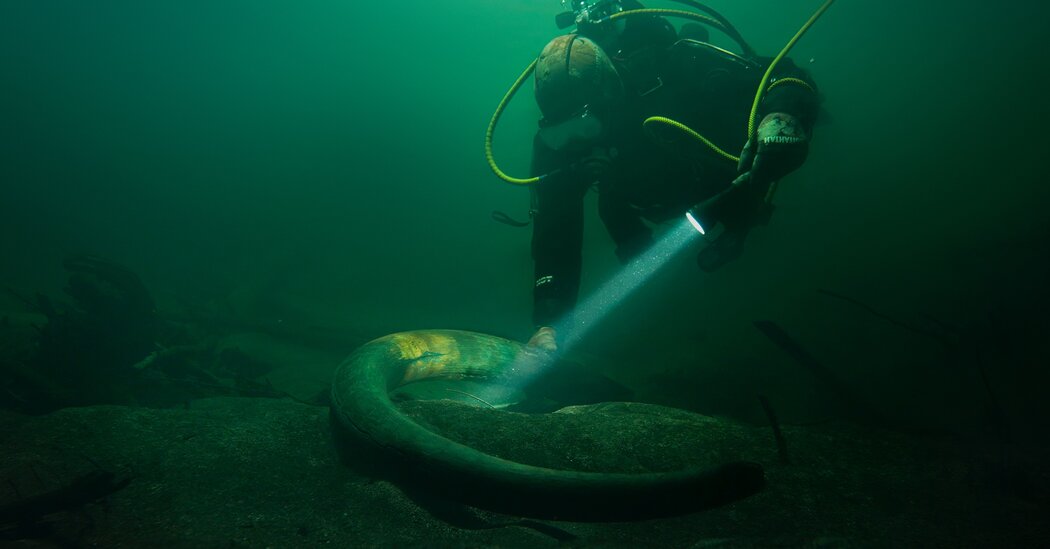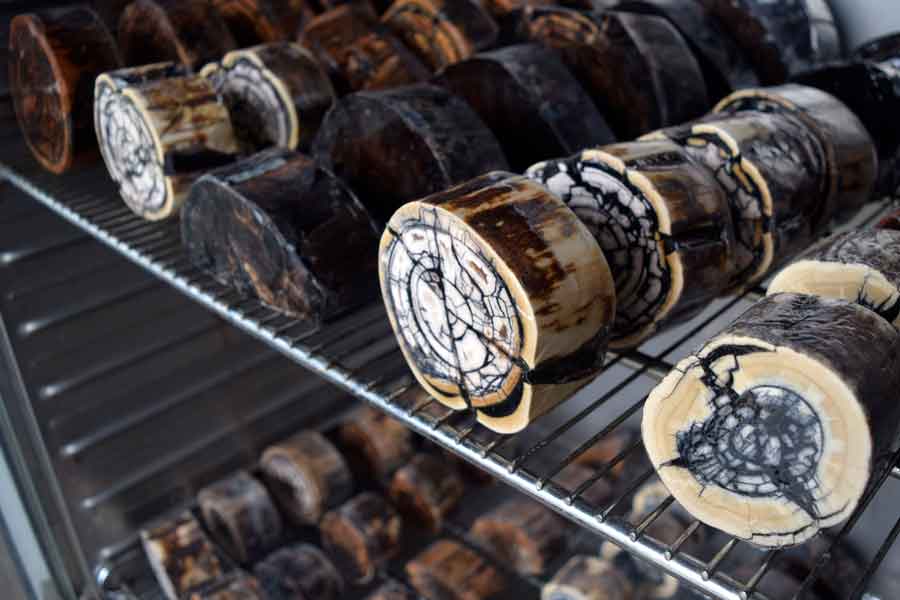Diving With Siberian Bone Hunters – The New York Times

In Russia’s Yakutia region, mammoths and other ice-age creatures once roamed the land.
Now, tens of thousands of years later, divers are searching beneath the ice for their bones.
Yakutia, part of which is north of the Arctic Circle, encompasses the coldest inhabited place on earth.
Some of the oldest mammoth fossils have been hidden in the permafrost for centuries. Today the permafrost is rapidly thawing as a result of climate change, and fossils are washing into the Adycha River.
These fossils can be difficult to reach, but in the winter, when the waters are still and clear beneath thick ice, local explorers know how to find them.
In February, Egor Vasilev, a diver from Yakutia, led a team of men on an expedition along the river.
“There are so many unique places underwater that nobody has ever seen in Yakutia,” says Vasilev, who has been diving for bones for nearly 10 years. “I want to show these mysteries to people.”
At the local Zhigansk Museum of History, there is an exhibit dedicated to the specimens Vasilev has found.
The crew looks for spots where erosion has made bones easier to find. Ivan Gorokhov cuts the ice, which is nearly six feet thick.
The team removes layer after layer until they hit water.
During this two-week expedition, they will dig new holes each day. It takes the men three hours to set up camp over each ice hole.
Inside the tent, the team defrosts its equipment using a portable stove in preparation for the dive.
Success is unpredictable. Sometimes the divers get lucky, and the river gives them a lot. Sometimes they spend weeks and return home empty-handed.
Evgenia Arbugaeva for The New York Times
When the holes are dug and the equipment is ready, the divers prepare for the icy plunge.
They work in pairs, with one diver in the water tethered by a rope to his partner on the surface.
Because the weather outside is minus 60 degrees, they pour hot water on the equipment to keep it from freezing before the dive.
Divers have enough oxygen to be underwater for up to two and a half hours.
Evgenia Arbugaeva for The New York Times
The diver carries a flashlight and a small metal tool to tap objects, to determine whether they are fossils or just wood.
“The world under the water is so strange and mysterious,” Gorokhov says. “It looks like this ancient cemetery.”
After over a week of diving, their efforts were finally rewarded.
They found the whole skull of a woolly rhinoceros, which is anywhere from 13,000 to 130,000 years old.
Along with two mammoth tusks,
a bison jaw and adult mammoth teeth.
When the expedition was complete, the crew returned to their base in a nearby village, Betenkyos, for a hot meal.
Evgenia Arbugaeva for The New York Times
“After the first dive, I came back a different man,” Gorokhov says. “Now I miss it when I don’t dive for a long time.”
Additional video by Alexander Krasnovsky.
Evgenia Arbugaeva is a photographer and filmmaker from Yakutia, based in London. Her film about a marine biologist in the Russian Arctic, ‘‘Haulout,’’ directed with Maxim Arbugaev, her brother, was nominated for an Academy Award for best documentary short film in 2023.
Maxim Arbugaev is a director and producer from Yakutia. His film “Genesis 2.0,” directed with Christian Frei, won a World Cinema Documentary Special Jury Award for cinematography at the Sundance Film Festival.
The Old Leatherman, a sort of real-life Northeastern Sasquatch, gave me an excuse to step outside my own life.
I wanted to learn how to prepare for disaster. It turned out I needed skills, yes — but the first thing was learning how to breathe.
Why would hundreds of people trek overnight through the wilderness with nothing but a compass? Because it’s the best feeling in the world.
Oklahoma City Thunder: How one of the N.B.A.’s scrappiest teams came to dominate the league.
Professor Fired for Her Politics: Maura Finkelstein is one of many scholars discovering that the traditional protections of academic freedom are no longer holding.
Roots Music: Streaming services are helping revive America’s most old-fashioned, undigital genre.
Assisted Death for the Non-Terminal: Paula Ritchie wasn’t dying, but under Canada’s new rules, she qualified for a medically assisted death. Was that kindness or cruelty?
Misty Copeland on ‘The Interview’: After 25 years with the company, ballet's biggest crossover star is retiring from American Ballet Theater.
Advertisement

